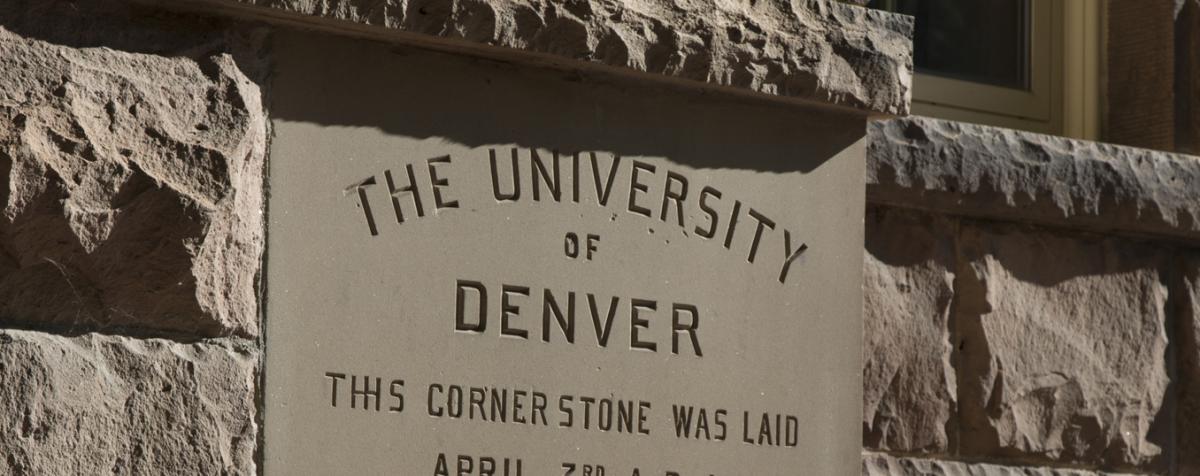Frequently Asked Questions
Q: How many members are on the University of Denver’s Board of Trustees and how long is each member's term?
A: The board consists of no more than 38 voting board members—all elected and appointed for four-year terms—divided into four classes. Trustees may serve no more than a total of three consecutive full terms; however, a trustee is eligible for re-election to the board following one year’s absence from board service.
Q: What are the board’s primary responsibilities?
A: The trustees provide guidance and oversight in the following areas: advancement, athletic affairs, audit, buildings and grounds, campus life and student success, faculty and educational affairs, finance and budget, investment, and nominating and governance.
Q: How often does the board meet?
A: The board meets as a group at least four times per year.
Q: Are the meetings open to the public?
A: No, per the board bylaws, meetings are not open to the public.
Q: Can the board take action outside of an official meeting?
A: Yes, any action to be taken at a meeting may be taken without a meeting if notice is transmitted in writing to each trustee.
Q: How many trustees are required to be present before action can be taken?
A: In all cases, a majority of the board of trustees would constitute a quorum for transacting business.
Q: If I am interested in being considered for membership on the board of trustees, what do I need to do?
A: Members are nominated by the Nominating and Governance Committee and are elected for four-year terms. If you are interested in being considered for membership or making a recommendation, please email the board of trustees at boardoftrustees@du.edu or call 303-871-3115.
Q: When are new trustees officially elected?
A: The board meets at least four times per year. New trustees are elected at the "annual meeting," which is considered the meeting held closest to June 1 of each year.
Q: Are there any other representatives who regularly present to the board of trustees?
A: The trustees welcome faculty and student feedback through their elected representatives. Representatives of the undergraduate and graduate student governments are non-voting members of the Campus Life and Student Success (CLASS) Committee. A member of the faculty senate sits on the Finance & Budget and Faculty and Educational Affairs Committees. The presidents of the faculty senate, undergraduate student government, and graduate student government are often invited to make reports during the Board's business meeting. Individual faculty members are also frequently invited to share their latest research. In addition, student groups, faculty and staff are often invited to participate in informal conversations with the Board during the quarterly Board meetings.
Q: Are board members compensated?
A: No, University of Denver Board of Trustee members serve without compensation.
Q: What is an honorary life trustee?
A: The board may, from time to time, honor a departing trustee with the title of honorary life trustee. Honorary life trustees are considered advisory trustees of the board. They do not have voting powers and cannot hold office, but they do have the right to attend meetings and serve on committees where appointed.
Q: Who makes up the executive committee and what are their responsibilities?
A: The board vests its functions and powers between meetings in its executive committee. This group is comprised of the chair, chair-elect, vice-chair(s), and secretary, along with trustees who chair the standing committees. The chair can also appoint other trustees to be members of the executive committee.








